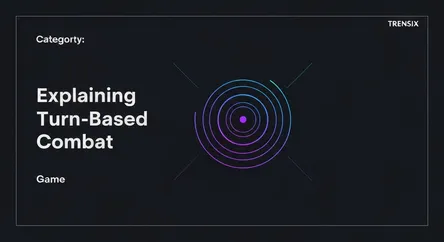Game
Explaining Turn-Based Combat

Discover turn-based combat, a strategic gameplay mechanic where players take turns. Learn why this classic system remains popular in modern RPGs.
What is it?
Turn-based combat is a gameplay mechanic where participants take turns to perform actions, similar to a board game. Unlike real-time combat where actions happen simultaneously, this system pauses the action, allowing each character or unit a specific turn to move, attack, or use an ability. Originating from tabletop role-playing games like Dungeons & Dragons, it became a cornerstone of early computer RPGs, particularly in the JRPG genre. The core appeal lies in its emphasis on strategy and planning over reflexes. Players must carefully consider their moves, character positions, and resource management to overcome challenges, making every decision impactful.
Why is it trending?
The mechanic is seeing a major resurgence as a deliberate alternative to the fast-paced action dominating the market. Games like Baldur's Gate 3 and Persona 5 have achieved massive success, proving there's a huge audience for more cerebral, tactical experiences. This trend is fueled by players seeking deeper gameplay that rewards thought and preparation rather than button-mashing skill. Indie developers have also embraced the system, as it allows them to create compelling combat encounters without the budget required for complex real-time action animation. It offers a nostalgic yet refined experience for veterans and a welcoming, strategic challenge for newcomers.
How does it affect people?
Turn-based combat encourages players to develop critical thinking and problem-solving skills. It forces a methodical approach, where one must analyze the situation, predict enemy actions, and formulate a multi-step plan for victory. This creates a profound sense of accomplishment when a difficult battle is won through superior strategy rather than sheer force. For players who find high-octane, real-time action stressful or physically demanding, turn-based systems provide a more accessible and less overwhelming way to enjoy complex games. It fosters patience and rewards careful consideration, offering a different, often deeper, kind of engagement with the game world.